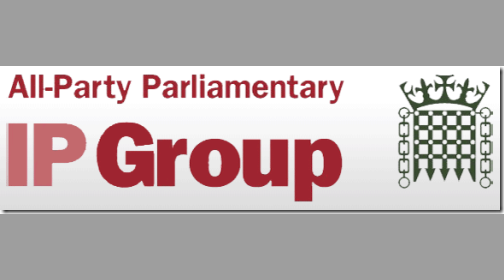politics
Google hands millions to ‘independent’ watchdogs
What do you do when a global corporation pays out millions to the watchdogs that we expect to protect us against it? It’s a fair question to ask in light of the Chocolate Factory’s legal settlement this week, over Google Buzz. The privacy class action suit has landed a windfall of millions of dollars to “privacy” groups – but not a cent to ordinary citizens, users of Google Gmail’s service whose privacy was compromised.
Election losers? Our clapped-out parties
Now the politicians themselves have given up on politics, and compete on being the most competent bureaucrats. Is it any wonder, then, the voters have given up on them? Read more at The Register
How the photographers won, while digital rights failed
How did the music business end up with a triumph with the new Digital Economy Act? How did photographers, whose resources were one laptop and some old fashioned persuasion, carry an unlikely and famous victory? How did the digital rights campaigners fail so badly? Back in January, a senior music business figure explained to me … Read more
Greatest Living Briton gets £30m for ‘web science’
As an alliance of the desperate, this one takes some beating. The Greatest Living Briton (Sir Timothy Berners Lee) has been thrown £30m of taxpayers’ money for a new institute to research “web science”.
Meanwhile the Prime Minister waxed lyrical today about the semantic web – how “data” would replace files, with machine speaking unto machine in a cybernetic paradise.
It’s really a confluence of two groups of people with a shared interest in bureaucracy.
Computer Science is no longer about creating graduates who can solve engineering challenges, but about generating work for the academics themselves. The core expertise of a CompSci department today is writing funding applications. And the Holy Grail for these paper chasers is a blank cheque for work which can be conducted without scrutiny for years to come. With its endless committees defining standards (eg, “ontologies”, “folksonomies”) that no one will ever use, the “Semantic Web” fits the bill perfectly.
Of course, most web data is personal communication that happens to have been recorded. Most of the rest is spam, generated by robots, or cut-and-paste material ‘curated’ by the unemployed or poor graduates – another form of spam, really. The enterprise is doomed. But nobody’s told the political class.
Net Neutrality: the Good Guys always were white
Delicious news from the United States, where ‘Net Neutrality’ is again being recast for a new political purpose.
The term long since ceased to mean anything – it now means anything you want it to mean. But as a rule of thumb, advocating Neutrality means giving your support to general Goodness on the internets, and opposing general Badness. Therefore, supporting Neutrality means you yourself are a Good Person, by reflection, and people who oppose Neutrality are Bad People.
This is a wonderful thing, and the beauty is, it’s all so simple. It’s like the Good Guys Wearing White – the Bad Guys oppose Neutrality. And because Neutrality is anything you want it to be, you have an all-purpose morality firehose at your disposal. Just point it and shoot at Baddies.
But best of all is that you get to define the Baddies, raise a lynch mob, catch them and hang them – before somebody has had a chance to ask "Where’s the harm, exactly?".
This time the accusation of Neutrality Violations is being turned on copyright holders, minority groups – and anyone who wants a network to run the way they want it to.
Sudden outbreak of democracy baffles US pundits
Something very spooky happened in the United States last week. The chances are you noticed it too, many days before it was reported.
Tuesday found me in New York, on my first stateside visit in a couple of years. The details of the Bailout plan had just been revealed and the slow burn of outrage was apparent everywhere.
The New Statesman’s NuLab IT Awards
Although the New Statesman magazine’s annual New Media Awards (NMA) don’t quite match up to the EFF’s annual Nepotism Award – nothing quite does – they’re still a rich source of humour and embarrassment.
Getting an NMA is the equivalent of getting an orange at half time from the coach of your village football team, just for turning up in the rain. But this year, even by its own standards, New Statesman appears to have outsourced the nominations to a team of satirical writers.
What else can explain one nominee, East Devon District Council, which is lauded for “using AJAX web technology” to “provide efficiencies in waste collections”.
Rubbish enabling rubbish, if you like.
But Garbage 2.0 faces a tough challenge from another nominee, Jimmy Leach, “head of digital communications” at 10 Downing Street.
“Since he started in his post at Downing Street,” we learn, “Jimmy Leach has transformed the government’s approach to new media”.
That’s remarkably similar to the boilerplate text Number 10 sends out to accompany Jimmy Leach’s forays into the real world:
“Since he started in his post at Downing Street, Jimmy Leach has transformed the government’s approach to new media,” apparently.
How? Well, “he executed the e-petitions strategy which has resulted in many millions of people engaging with the website. He has also instituted a series of podcasts featuring the PM and personalities such as Eddie Izzard, Stephen Fry, Chris Evans, Bill Bryson and more”.
Your taxes at work, there.
Obama mounts ‘Neutrality’ bandwaggon
Politicians long ago gave up on politics. Instead of articulating great ideas, the choice that faces voters today is between identikit managerial bureaucrats who’ve never had a job outside politics. Most of their adult lives have been spent in the hermetic world of wonkdom. So it’s little wonder, then, that they have trouble distinguishing between fiction and reality.
And it’s no surprise at all to hear that a virtual Presidential candidate is throwing his electrons behind a virtual cause, to repeal a virtual law that never existed.
What else would a cypher do?
Asked whether he’d “re-instate Net Neutrality” as “the Law of the Land”, trailing Presidential Candidate Barack Obama told an audience in Cedar Rapids, Iowa pledged that yes, he would.
He also said he’d protect Ewok villages everywhere, and hoped that Tony Soprano had survived the non-existent bloodbath at the conclusion of The Sopranos.
(So we made the last two up – but they wouldn’t have been any more silly than what the Presidential Candidate really said.)
There are several problems with Obama’s pledge.
Miliband goes mad for Web 2.0
David Miliband, the environment minister tipped to be the next Labour Party leader by a friendly Westminster press, says “a new spirit” is afoot in the UK, brought about by Web 2.0.
Miliband said the web had polarised debate into competing extremities, where the truth was decided by whoever shouted the loudest. Traditional engineering values, where things work, had been replaced by a “Permanent Beta” mentality where the vendor tries to escape its responsibilities by selling the company before it has to fix its own bugs.
He also lamented the devaluation of expertise in favour of what he called “a permanent idiocracy”. He painted a picture of high streets decimated by home shopping, and an atomised and fragmented society that could only express itself by blogging into the digital ether. The political class, Miliband concluded, had a duty to temper this dark side of technology.
Impressive stuff, or what?




